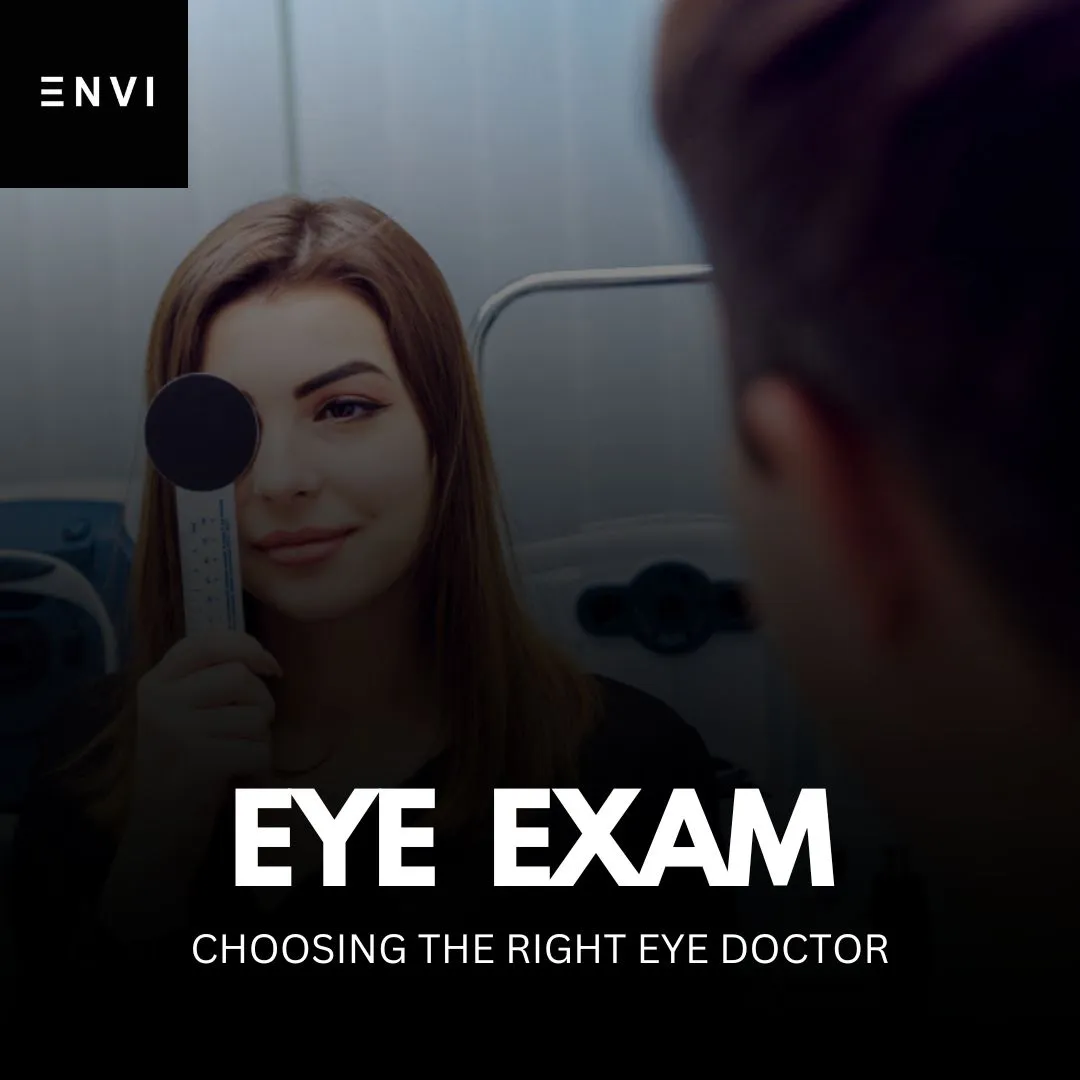Choosing the Right Eye Doctor for Your Eye Exam
Choosing the right eye doctor for your eye exam Calgary is a crucial step in maintaining optimal eye health. With a variety of professionals available, understanding the differences and knowing what to look for can make the decision easier.
This guide will help you navigate the process of choosing the right eye doctor, ensuring that you receive the best care for your vision needs.
Understanding the Types of Eye Doctors
The first step in choosing the right eye doctor is understanding the different types of eye care professionals.
There are two main types:
- optometrists
- ophthalmologists.
Optometrists are healthcare professionals who provide primary vision care, including eye exams, vision tests, prescribing corrective lenses, and detecting certain eye abnormalities. They hold a Doctor of Optometry (OD) degree.
Ophthalmologists, on the other hand, are medical doctors (MDs) who specialize in eye and vision care. They perform eye exams, diagnose and treat eye diseases, prescribe medications, and perform eye surgeries.
Understanding these differences will help you choose the appropriate professional based on your specific needs.
Assessing Credentials and Experience
When selecting an eye doctor, it is important to assess their credentials and experience. Check if the eye doctor is licensed and board-certified, which indicates that they have met the required standards of education and training. Additionally, consider their experience in the field. An eye doctor with several years of practice is likely to have a deeper understanding of various eye conditions and treatments.
Important Note: If you have a specific eye condition, such as glaucoma or macular degeneration, look for a doctor who has specialized experience in treating that condition.
Considering Referrals and Reviews
Referrals from friends, family, or your primary care physician can be invaluable in finding a reputable eye doctor. Personal recommendations can provide insight into the doctor’s demeanor, office environment, and quality of care. Additionally, online reviews can be a helpful resource. Websites like Healthgrades, Zocdoc, and Yelp allow patients to leave feedback on their experiences.
While reading reviews, consider both the overall rating and specific comments about the doctor’s professionalism, thoroughness, and the friendliness of the office staff.
Evaluating Office Location and Hours
Convenience is an important factor when choosing an eye doctor. Consider the location of the doctor’s office and its proximity to your home or workplace.
An office that is easily accessible will make it more convenient for you to attend appointments, especially if follow-up visits are necessary. Additionally, check the office hours to ensure they fit with your schedule. Some eye doctors offer evening or weekend appointments, which can be beneficial if you have a busy work or school schedule.
Assessing Technology and Services Offered
Advancements in eye care technology can significantly enhance the quality of your eye exam and treatment. When evaluating an eye doctor, inquire about the technology and equipment they use.
Modern tools like digital retinal imaging, optical coherence tomography (OCT), and visual field testing can provide more accurate and comprehensive assessments of your eye health.
Additionally, consider the range of services offered. A well-rounded practice should provide a variety of services, including routine eye exams, contact lens fittings, and treatment for common eye conditions.
Observing the Doctor-Patient Relationship
The doctor-patient relationship is a key component of effective eye care. During your initial consultation, observe how the eye doctor interacts with you. A good eye doctor should take the time to listen to your concerns, answer your questions, and explain the procedures and treatments in a clear and understandable manner.
They should demonstrate a genuine interest in your eye health and well-being. If you feel rushed or uncomfortable, it may be a sign to look for another provider who prioritizes patient care and communication.
Understanding Costs and Insurance Coverage
Eye exams and treatments can be costly, so it is important to understand the costs involved and whether your insurance covers them. Contact the eye doctor’s office to inquire about their fees for various services.
If you have vision insurance, verify that the doctor is within your insurance network to take advantage of lower out-of-pocket costs. Some practices also offer payment plans or discounts for uninsured patients, so be sure to ask about available options.
Making the Final Decision
Choosing the right eye doctor for your eye exam involves careful consideration of several factors.
Understanding the types of eye care professionals, assessing credentials and experience, seeking referrals and reviews, evaluating office location and hours, assessing technology and services, observing the doctor-patient relationship, and understanding costs and insurance coverage will help you make an informed decision.
Prioritizing these aspects will help you find an eye doctor who meets your needs and ensures the best possible care for your vision health.

